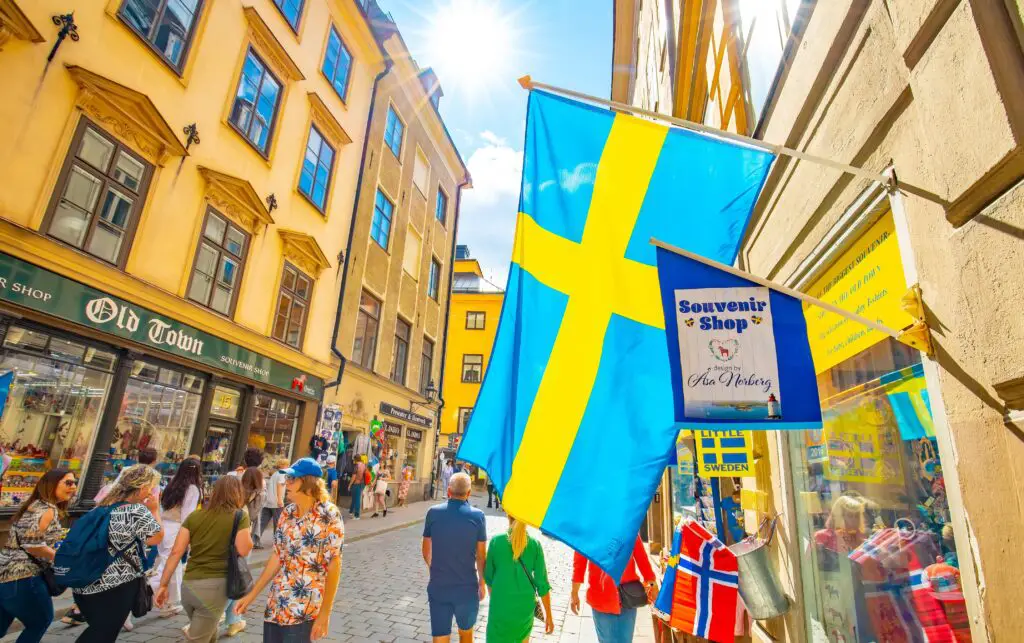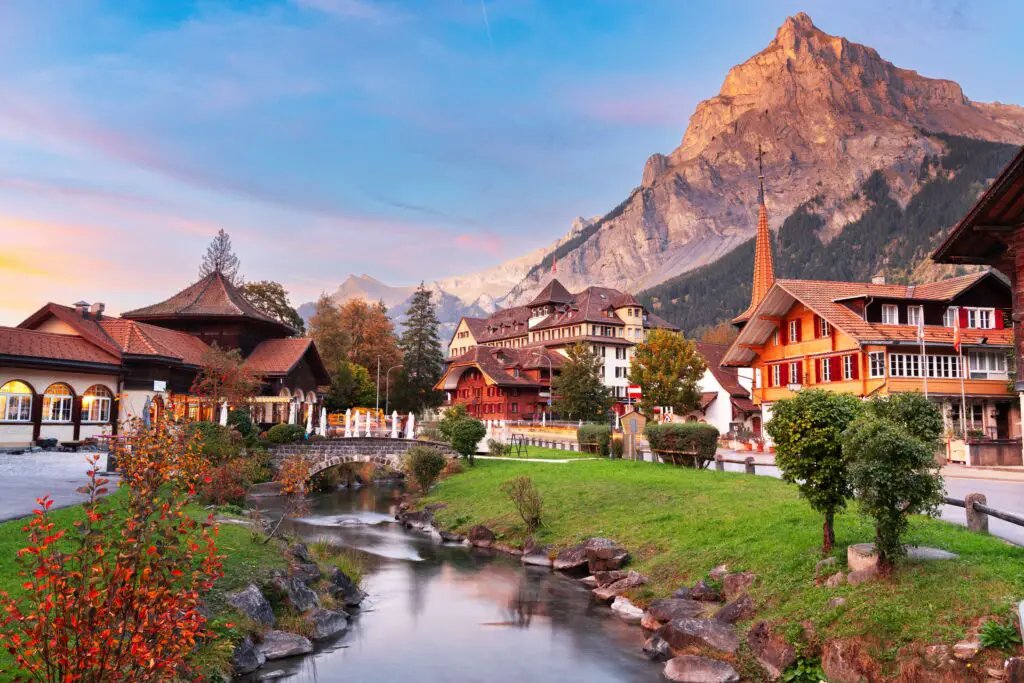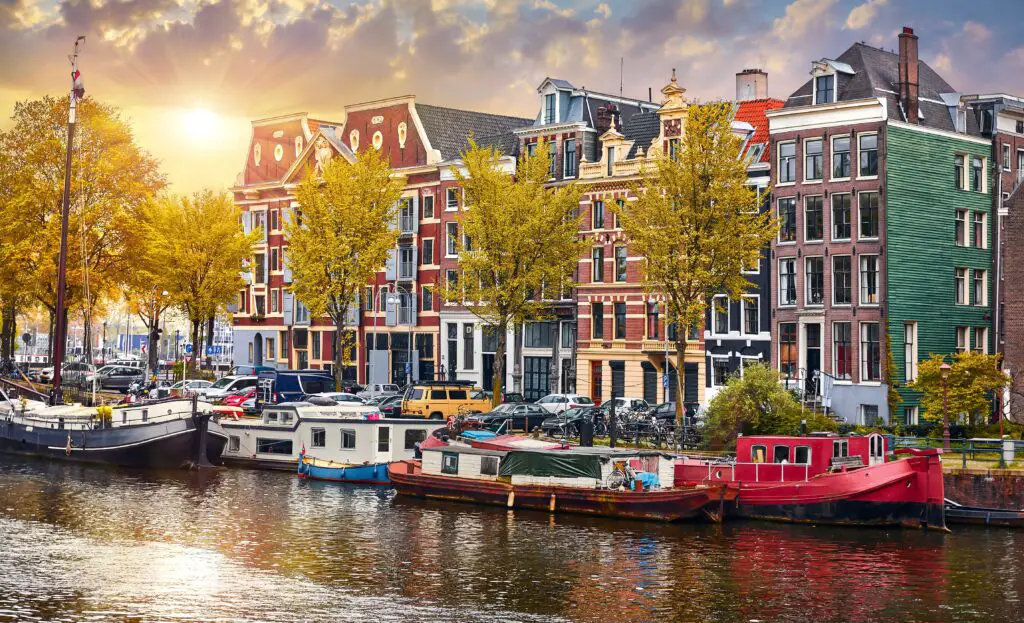1. Japan

If there’s one place where personal space is practically sacred, it’s Japan. The culture values politeness and order, which means people avoid unnecessary physical contact and go out of their way not to invade someone else’s bubble. Public transportation, even when packed, is a quiet and orderly experience where people keep to themselves. It’s also why you’ll notice that bowing replaces handshakes in many situations—no need to get too close. In stores and restaurants, employees are known for their impeccable manners, always keeping a respectful distance while assisting customers. Even in public parks, you’ll find people subtly positioning themselves to avoid intruding on someone else’s solitude. If you’re the type who needs a little breathing room, Japan will feel like a dream shares Culture Crossing Guide.
That said, there are exceptions, like rush-hour trains in Tokyo, where personal space becomes nonexistent. But even in those situations, people avoid eye contact and minimize interaction as much as possible. Strangers won’t randomly strike up conversations, and people will quietly move aside if they sense they’re too close. This respect for space extends to daily life, with homes designed for privacy and noise kept to a minimum. Restaurants even have individual booths where you can eat alone without any interaction. In Japan, respecting personal space isn’t just polite—it’s expected adds Linkedin.
2. Finland

Finns take personal space so seriously that it’s almost an art form. Strangers on public transport will leave at least one empty seat between them if possible. Small talk? Forget about it—people here value their solitude and prefer meaningful conversations over idle chatter. If you’re walking down a street and make accidental eye contact, don’t expect a friendly nod or smile. Finns aren’t being rude; they’re just respecting your space and expecting the same in return. Even in elevators, you’ll notice people naturally spreading out instead of standing close together. If you’re used to more touchy-feely cultures, Finland might take some adjusting says Big in Finland.
In social situations, personal space is also key. Hugging is generally reserved for close friends and family, and even handshakes can feel a bit formal. Finns tend to communicate in a straightforward way, with no unnecessary hovering or over-the-top enthusiasm. In many ways, this preference for space extends to Finland’s love for nature—many people escape to secluded cabins for quiet and solitude. If you enjoy the idea of being left alone without judgment, Finland is the perfect place to be shares Finnwards.
3. Sweden

Much like their Finnish neighbors, Swedes deeply value their personal space. In public, they maintain a noticeable distance from strangers and expect the same courtesy in return. Conversations are often quiet and reserved, with minimal physical contact. Even waiting in line is a structured affair, with people standing a respectful distance apart. Public transport follows the same unspoken rule—if there’s room, Swedes will always opt for extra space rather than sitting too close. If you’re the kind of person who appreciates not being jostled by strangers, Sweden will feel like paradise.
Social interactions are equally respectful of space. While Swedes are friendly, they tend to be private and don’t engage in small talk just for the sake of it. Hugging and touching are reserved for close relationships, and even then, they’re not overdone. If you’re invited to someone’s home, expect a warm but measured welcome rather than an over-the-top greeting. In Sweden, giving others their space isn’t just about comfort—it’s a sign of respect.
4. Norway

Norwegians are known for their love of personal space, especially in public settings. If you ever take a bus or train in Norway, you’ll notice people naturally spacing themselves out, avoiding unnecessary proximity. Even in crowded places, there’s an unspoken agreement to maintain distance whenever possible. This preference for space isn’t about being unfriendly—it’s simply part of Norwegian culture. People here enjoy their personal bubbles and don’t feel the need to fill silence with chatter. If you’re used to more socially engaging environments, it might take some getting used to.
In everyday life, Norwegians extend this personal space preference to conversations and social interactions. Striking up a conversation with a stranger isn’t common unless there’s a reason for it. Physical contact is also kept to a minimum, with greetings often limited to a simple nod or handshake. Even at social gatherings, there’s a comfortable sense of distance between people. If you prefer a culture that respects your need for space, Norway is a great fit.
5. Germany

Germans are known for being efficient, direct, and respectful of boundaries—including physical ones. Unlike cultures where hugging and cheek-kissing are common, Germany favors a more reserved approach. Handshakes are the standard greeting, but even those aren’t overly enthusiastic. If you’re standing too close to someone in a public place, don’t be surprised if they shift away slightly. Germans appreciate order and personal space, and they expect others to do the same. This preference is particularly noticeable in queues, where cutting in line or standing too close is a serious faux pas.
Public transportation follows the same unspoken rules. If there’s an empty seat, people will take it rather than sitting next to someone unnecessarily. Even in social settings, Germans maintain a certain physical distance. While they can be warm and friendly, they generally won’t invade your personal space unless they know you well. If you value clear boundaries and personal space, Germany is an easy place to feel comfortable.
6. Switzerland

Switzerland is a country where personal space is highly respected. In public settings, people naturally maintain a comfortable distance from others. Pushing, shoving, or standing too close in lines is rare, as order and respect are deeply ingrained in Swiss culture. Even on public transport, people tend to space themselves out whenever possible. Conversations with strangers are polite but not overly familiar. If you’re used to cultures where casual touching and close contact are common, Switzerland might feel a bit formal.
Swiss people extend this space-conscious approach to social interactions as well. Greetings are typically reserved, with handshakes being the norm rather than hugs. Strangers don’t engage in small talk unless there’s a practical reason. In homes and businesses, interactions are courteous but never intrusive. If you enjoy a culture where respect for personal boundaries is the norm, Switzerland is a perfect fit.
7. Canada

Canadians are known for being friendly, but that doesn’t mean they disregard personal space. In fact, most Canadians are very conscious of giving others their own space. Whether it’s in a line, on public transportation, or just walking down the street, people will instinctively avoid getting too close. Physical contact is generally minimal unless you’re close friends or family. Even casual greetings tend to be verbal rather than physical.
Socially, Canadians value politeness, and that includes respecting personal boundaries. People won’t invade your space unnecessarily, and they expect the same in return. Hugging and touching are usually reserved for close relationships. While small talk is common, it’s rarely accompanied by excessive physical interaction. If you prefer a culture that balances warmth with personal space, Canada offers the best of both worlds.
8. Australia

Australians are laid-back, but they still appreciate their personal space. While they’re friendly and open, they generally won’t invade your bubble without reason. In public, people naturally spread out and avoid unnecessary contact. If you’re standing too close to someone in a queue, expect them to subtly move away. Aussies enjoy a relaxed lifestyle, but that doesn’t mean they don’t appreciate boundaries.
Socially, physical touch is reserved for familiar relationships. Greetings are typically verbal, with handshakes being the most common form of contact. Even in conversations, people respect each other’s space. While Aussies love a good chat, they won’t stand uncomfortably close while having one. If you like a mix of friendliness and personal space, Australia is an easy place to fit in.
9. Netherlands

The Dutch are known for their directness, but that doesn’t mean they invade personal space. In fact, they’re quite conscious of maintaining a comfortable distance from others. Public transport, queues, and even casual conversations all come with an unspoken rule of respecting physical boundaries. People in the Netherlands will naturally space themselves out, and unnecessary touching is rare. You won’t find excessive hugging or cheek-kissing here, except in close relationships. Even when greeting friends, a quick handshake or a brief, friendly nod is usually enough.
In social settings, the Dutch value open and honest communication, but they don’t believe that means getting physically close. They prefer to have personal space even in group conversations, and they won’t lean in unnecessarily. If you’re used to cultures where people stand very close when talking, you might notice the extra distance here. It’s not coldness—it’s just the Dutch way of respecting boundaries. If you appreciate a society where space is part of daily life, the Netherlands is a great match.
10. Denmark

Danes enjoy a sense of privacy that extends into their personal space. They’re friendly and welcoming, but they’re also quite reserved when it comes to physical contact. In public places, people naturally maintain a bit of distance, whether they’re in a store, on a train, or standing in a queue. Pushing or crowding is considered impolite, and people will quickly adjust if they feel someone is too close. Even in casual settings, you won’t find Danes getting overly touchy.
Social interactions in Denmark follow the same pattern. Handshakes are the most common greeting, and hugging is generally reserved for close friends and family. If you’re meeting a Dane for the first time, they likely won’t stand too close or invade your bubble. Conversations are friendly but not overly familiar, and silence is not seen as awkward. If you’re someone who values a bit of space, Denmark offers a naturally comfortable environment.
11. Austria

Austrians are known for their politeness, and that extends to their awareness of personal space. In public settings, people stand at a comfortable distance from each other, whether they’re waiting in line or having a conversation. Public transport riders will avoid unnecessary contact whenever possible. Austrians also tend to be quiet in public spaces, further reinforcing the idea of personal boundaries. Even in crowded areas, you’ll notice a general effort to give others as much space as possible.
In social situations, Austrians prefer formal greetings, typically a handshake rather than a hug. If you’re introduced to someone, they likely won’t move in too close or touch you unnecessarily. Even among friends, personal space is maintained unless there’s a strong bond. Austrians appreciate their privacy, and they won’t pressure others into interactions they’re not comfortable with. If you like a culture that values respectful distance, Austria is a great fit.
12. New Zealand

New Zealanders are known for their easygoing nature, but that doesn’t mean they disregard personal space. In fact, they tend to be quite mindful of it. People naturally give each other room in public, whether in lines, on public transport, or while walking down the street. While Kiwis are friendly, they don’t typically engage in excessive physical contact with strangers. Even in casual conversations, they maintain a comfortable distance.
In social settings, greetings are usually limited to a handshake or a simple “hello.” Hugs are reserved for close friends and family rather than casual acquaintances. Even in workplaces, there’s an unspoken rule about keeping a respectful amount of space between colleagues. If you appreciate a culture that balances warmth with personal boundaries, New Zealand will make you feel right at home.
